
Why Do Dogs Like Babies? Exploring Protection and Understanding
The bond between dogs and babies is almost mythical, enigmatic to adult humans lacking in the magic of children and animals. However, there are some practical reasons why dogs like babies that even we grown-ups can understand.
These are the reasons why dogs are gentle with babies, as well as some essential things to know to keep your baby safe around your dog.
- Dogs are protective of babies, reflecting their instinctual pack behavior.
- Breeds like Newfoundlands and Pit Bulls are naturally gentle with children.
- Preparations and supervision ensure safety between dogs and babies.
- Dogs can sense pregnancy and changes in family dynamics.
- Positive reinforcement helps build a bond between dogs and babies.
The information provided herein is for informational purposes only. Please refer to our disclaimer for more details..
Why are Dogs Gentle with Babies?
Image credits: Picsea.
Instinctual and Learned Gentleness
Dogs are known best for their loyal and protective nature. This is especially true when it comes to vulnerable family members, particularly children.
A dog’s instinctual protective nature stems from their pack animal origins. Protecting the young ensures the species’ survival.
Most dogs naturally recognize that a baby is like a puppy: extremely vulnerable. They also seem to realize that this tiny person is a part of their pack.
However, a dog’s special interest in babies likely goes deeper than instinct.
When a dog sees the gentle way in which humans handle and care for children, they mirror the behavior, the same way they mimic so much of what we do. Your verbal cues and body language are crucial in guiding a dog’s behavior around babies.
Breed-specific Gentleness
Most family dogs tend to be gentle with babies. However, some breeds are more naturally inclined towards gentleness than others.
- Newfoundlands are often called “nature’s babysitter” because of their naturally protective and gentle nature around children. Historically, they rescued people from water, a job they still do today. A Newfie’s ability to stay calm and non-aggressive even when dealing with a panicky person makes them well-suited to being gentle with your baby.
- Pit Bulls have long been known as “nanny dogs”. These dogs seem to know how to keep kids safe, whether from wandering off or from a threatening person or animal. In the early 20th century, they were often pictured alongside children.
- Retrievers like Golden and Labrador Retrievers have been bred for many years to be trainable, friendly, and tolerant. They have soft mouths that are gentle with what they carry, which is convenient when training them to interact with children.
How do Dogs Show Interest in Babies?
Dogs show their endless fascination with a baby, especially a new one, in a myriad of ways. They might hover around the baby, wag their tails, and seem to smile. Many dogs attempt to lick the baby, especially around their bottom and face, in an attempt to clean it as they would a puppy.
Dogs are often protective of human babies. They may be stiff or position themselves in front of the baby if it cries or if someone not in the family gets close to it.
Protective behavior can range from standing guard to aggression towards perceived threats to the baby. Some dogs need to be restrained when visitors come.
Many dogs alert the parents when the baby wakes or cries.
Pre-birth Sensing
There’s strong anecdotal evidence suggesting that dogs sense a baby before it is born. Their keen sense of smell allows them to pick up on the changing pheromones in a pregnant woman. Excellent hearing may enable them to pick up a baby’s movements and sounds from the womb.
Dogs often act more protective of and gentle around a pregnant mother as the pregnancy progresses.
Precautions for Dog Owners
Ensuring safety is vital when it comes to interactions between dogs and babies. While most dogs are protective and trustworthy, constant supervision is demanded to be sure that dogs are gentle with babies.
Even the most temperate dog may react unpredictably when startled or threatened. Babies have a different way of triggering a dog than an adult. Dogs may hurt babies for various reasons, intentionally and unintentionally. Dogs can simply be clumsy or oblivious and scratch or step on the baby. Babies can be loud and not always gentle. If they startle or hurt a dog, a bite may result.
Training and socialization are key to fostering gentleness. If you’re unsure how your dog will do with babies, consider hiring a dog trainer who is experienced in preparing dogs for the arrival of a new baby.
Getting Started
Image credits: Minnie Zhou.
As soon as possible after the baby is born, bring home something from the hospital that the baby has used. This gives your dog some time to get acquainted with this new person before they come home.
Initial interactions should be highly controlled. Start with one adult holding the child while another has the dog on a leash. This allows you to safely gauge how your dog will react and if they seem to understand the child’s vulnerability.
Transitioning to a Baby Gate
As your child grows, interactions across a baby gate are an ideal next step. The baby gate serves as a protective barrier, allowing the dog and baby to interact and get accustomed to each other at eye level without allowing them to get too close.
It also gives you a chance to see how the dog will be around a baby before they’re in the same space.
Shared Space Interactions
Once the dog has consistently been gentle around a baby, transitioning to shared space interactions is the next logical step. Establish clear, non-negotiable boundaries for both dog and child. Children should not be able to grab the dog, and the dog shouldn’t mouth or paw at the child.
Neither should attempt to take food or toys from the other. Play must be kept under control, as overly amped kids and dogs often result in unintentional injuries.
Handling Aggression
React instantly if your dog shows any signs of aggression towards a baby. Some dogs become increasingly intolerant as children grow. Other dogs really don’t seem to take to the baby from the beginning.
Things to look for are stiffness, nervous signs like yawns and whale eye, and particularly growls or snaps. If you see ANY of these signs, separate the dog and child immediately.
Sometimes, it’s not the baby but others that may be the target of aggression. Some dogs protect children far too intensely from strangers, lesser-known family members, or even the child’s own parents. Breeds known to be guard dogs are more prone to this behavior, but any dog may want to protect a baby too much.
Take this behavior seriously. Even if you think the bond between the two of you is ironclad, dogs have feelings and instincts they have never had before when they’re being protective of babies.
Don’t hesitate to seek professional help from a dog trainer or a veterinarian. You need to understand the root of the aggression to learn how to manage it.
Building the Bond Between Dogs and Babies
Image credits: Zachary Kadolph.
Before your baby’s arrival, familiarize your dog with baby-related scents and sounds to help them adjust to the new family member. Reward your dog with praise or treats when they exhibit gentle behavior around these stimuli, so they’ll form a positive association with the baby.
As your dog starts to see your baby as part of their pack, every gentle interaction should be met with positive reinforcement. Treats, praise, and play are tools to build a powerful bond.
As your child grows, involve them in as many dog-related activities as possible. Simple tasks like helping to feed the dog, playing with them, and going on walks make the dog see the child as a tiny human, but one who can meet their needs.
As soon as your child can talk, encourage them to practice basic obedience commands with your dog. This instills a sense of leadership in your child and a sense of respect for the child in your dog.
In Conclusion, Why Do Dogs Like Babies?
The relationship between dogs and babies is perhaps the clearest demonstration of the family dog’s gentle and protective nature.
Take time to prepare for the arrival of a new baby, promote positive interactions, and constantly supervise to safely grow the special bond between your dog and child.
FAQ
Why do dogs know to be gentle with babies?
Dogs can sense a baby’s vulnerability. They understand that babies are helpless and need protection. They read their family’s body language as well, mirroring gentle behavior towards babies.
Why do dogs trust us with their babies?
Dogs trust us with their puppies because they see us as human family members. It makes sense that they should trust us with their puppies, just as we trust them with our babies.
Do dogs like to be cradled?
The preference for being cradled can vary from dog to dog. Some dogs may find cradling comforting, while others may find it restrictive or anxiety-inducing. Let your dog choose to push closer to you rather than pulling it in.
2Kviews
Share on Facebook
 Dark Mode
Dark Mode 

 No fees, cancel anytime
No fees, cancel anytime 


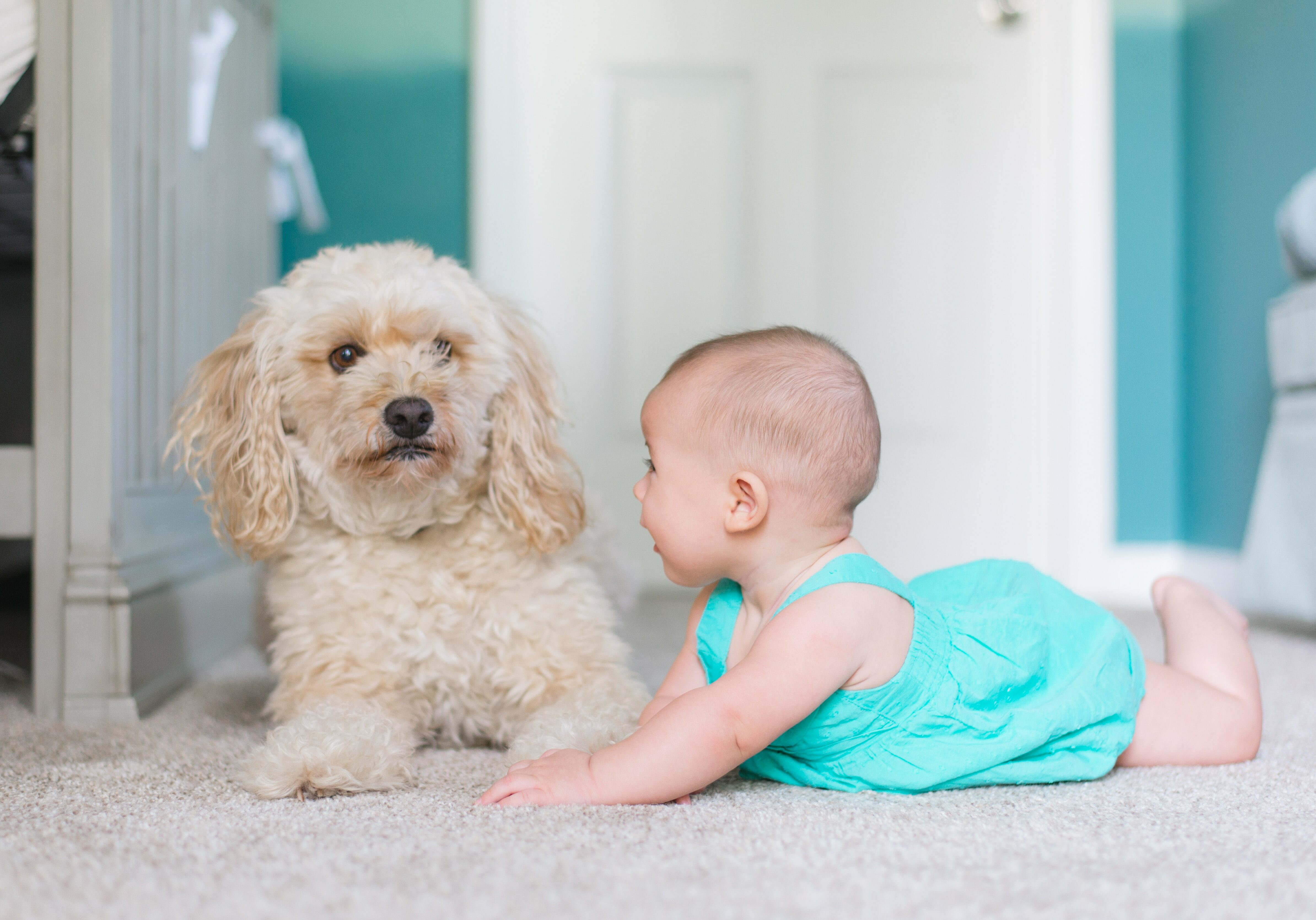
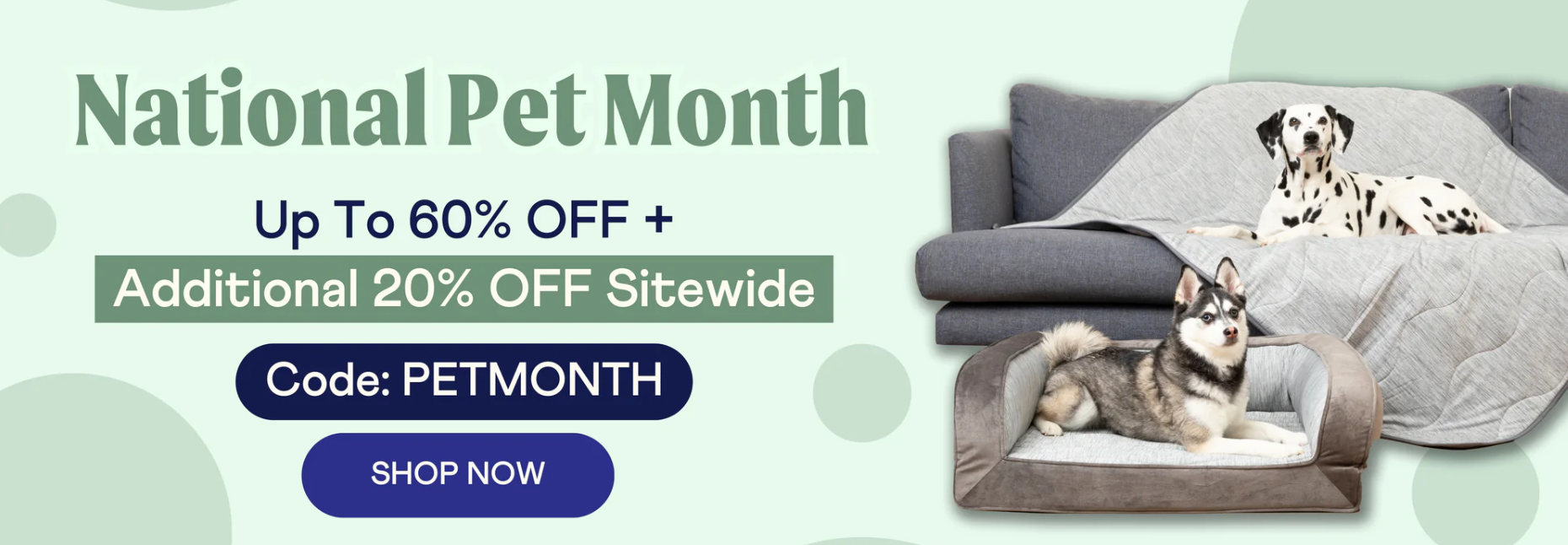
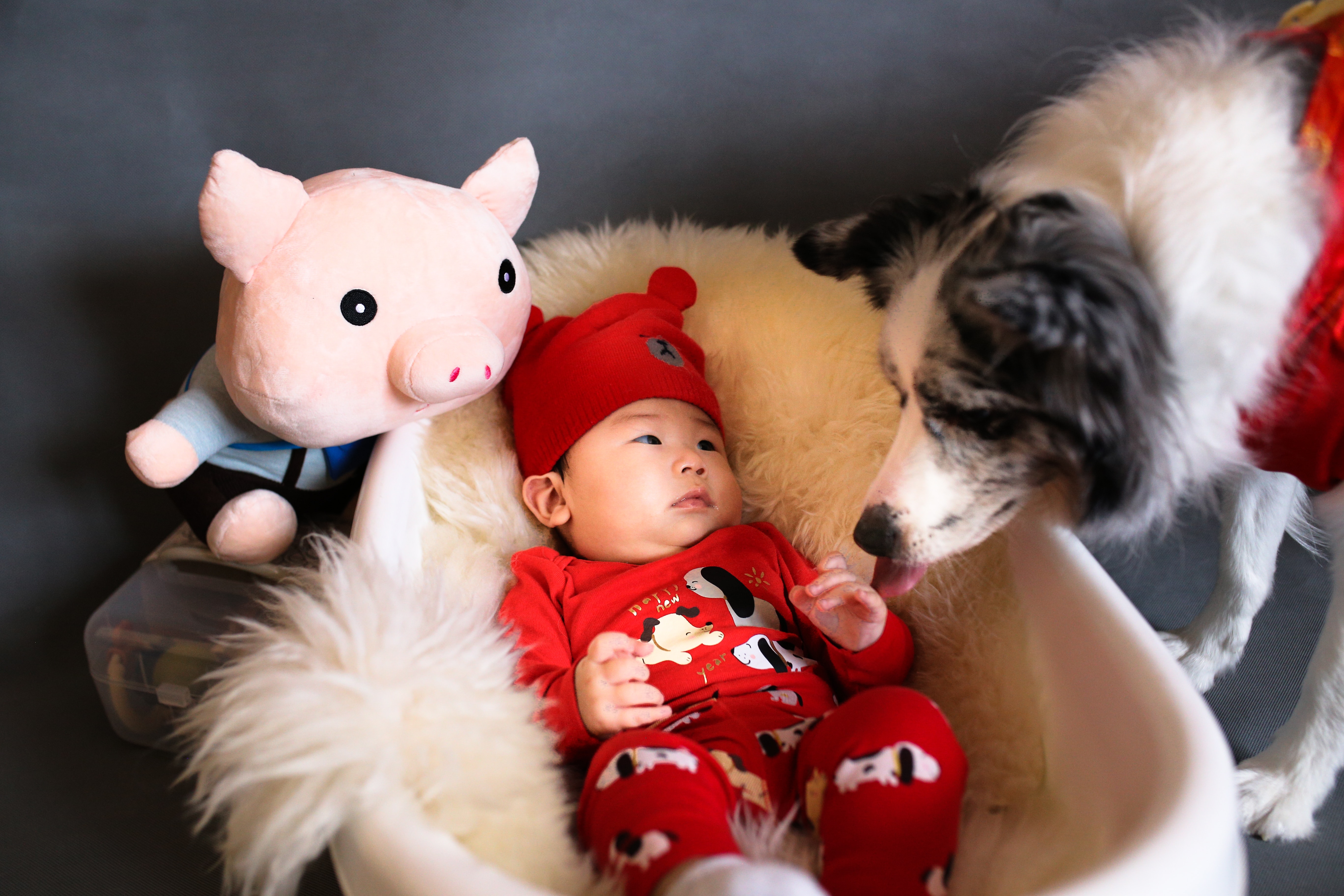



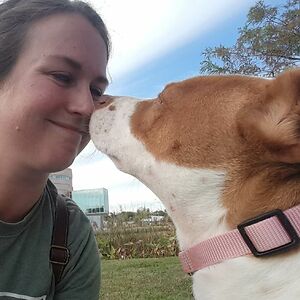









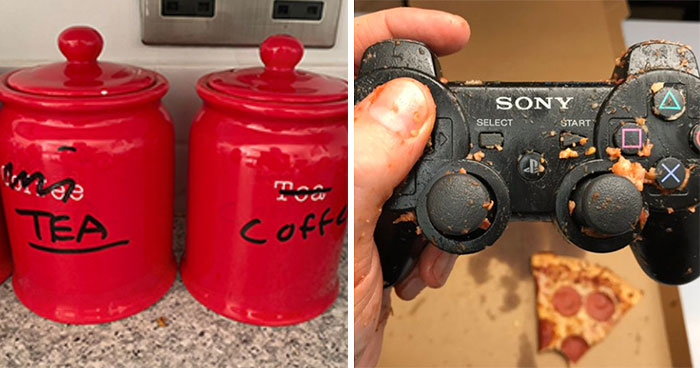
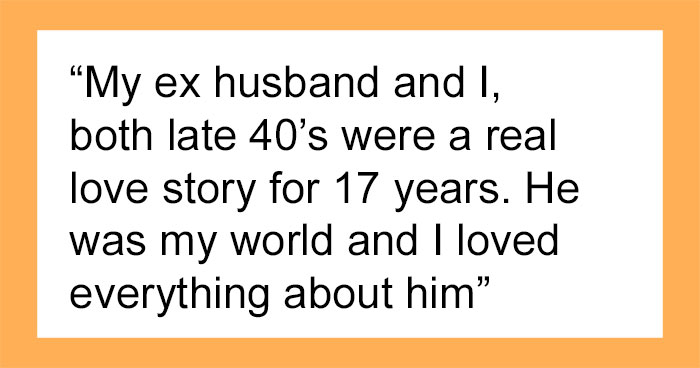

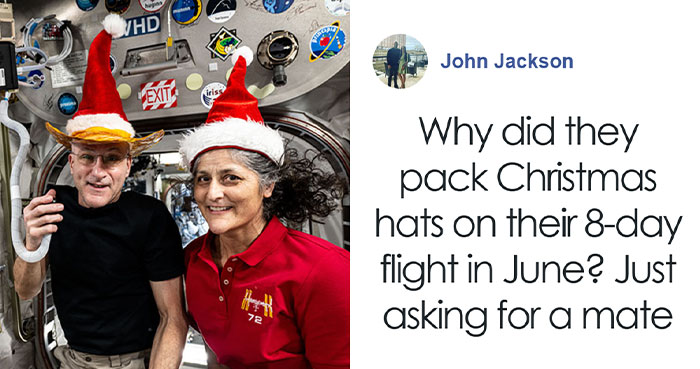
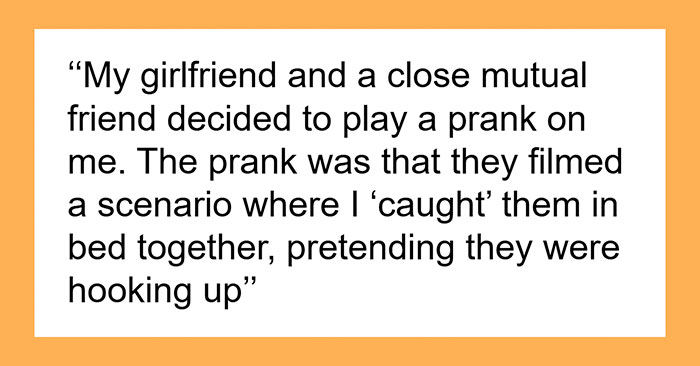
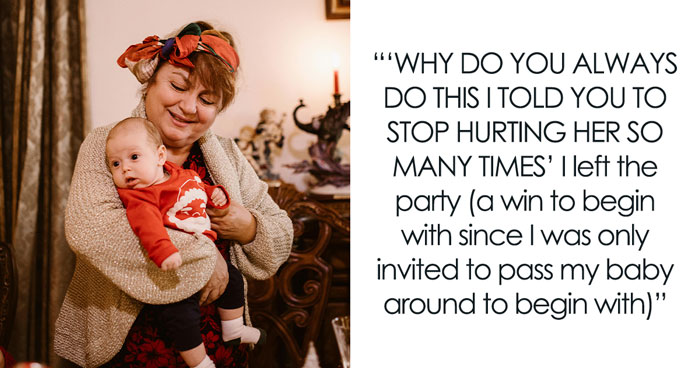
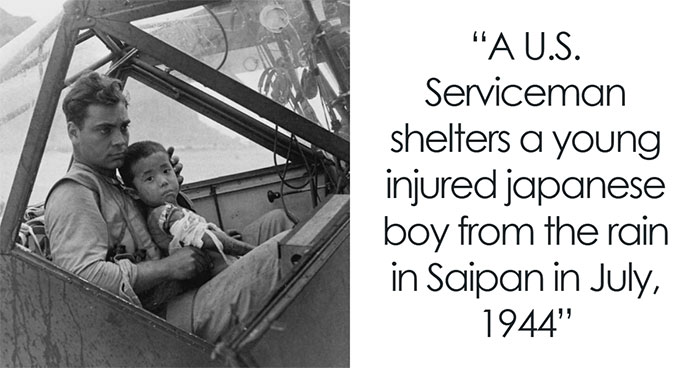

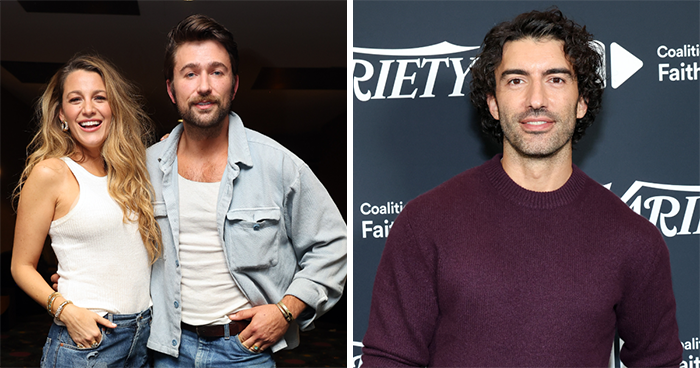




1
1